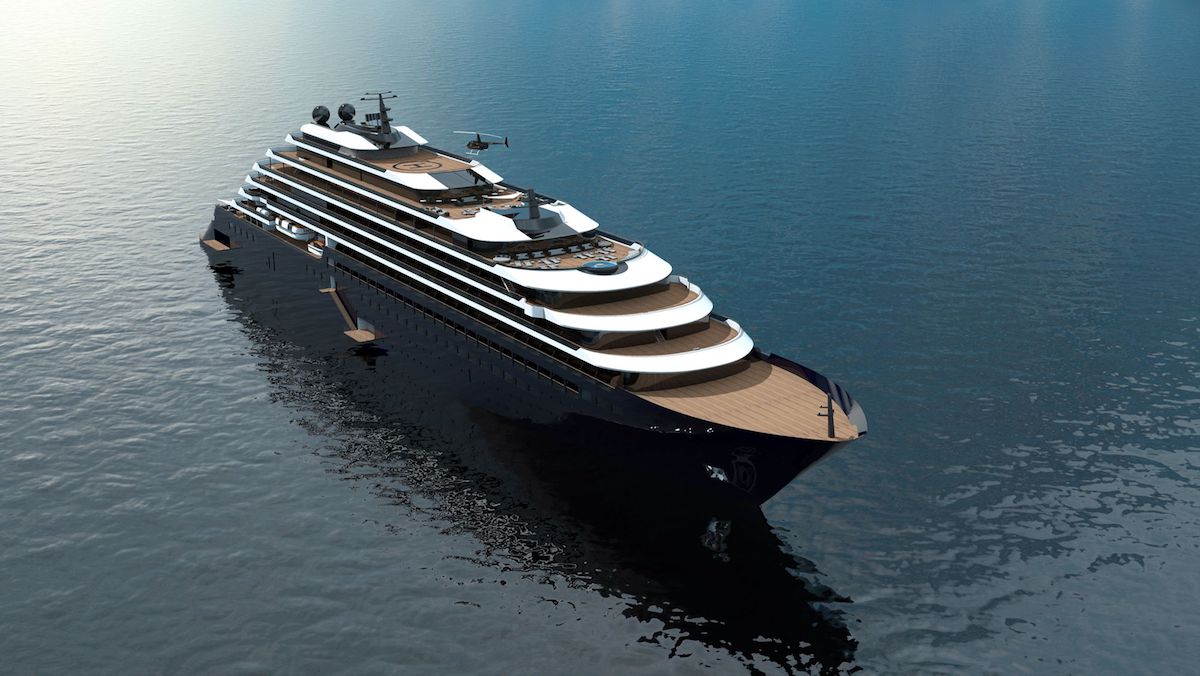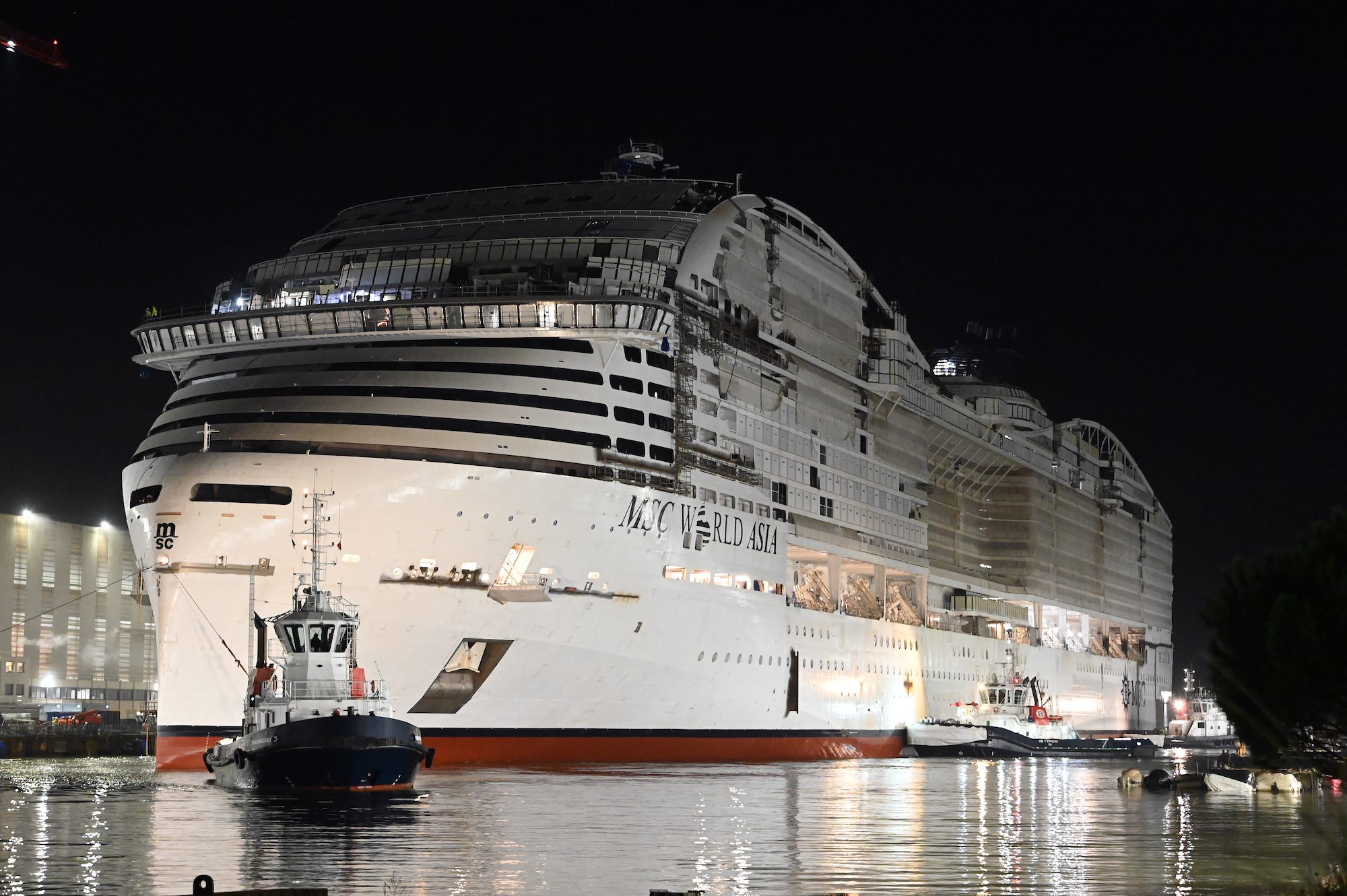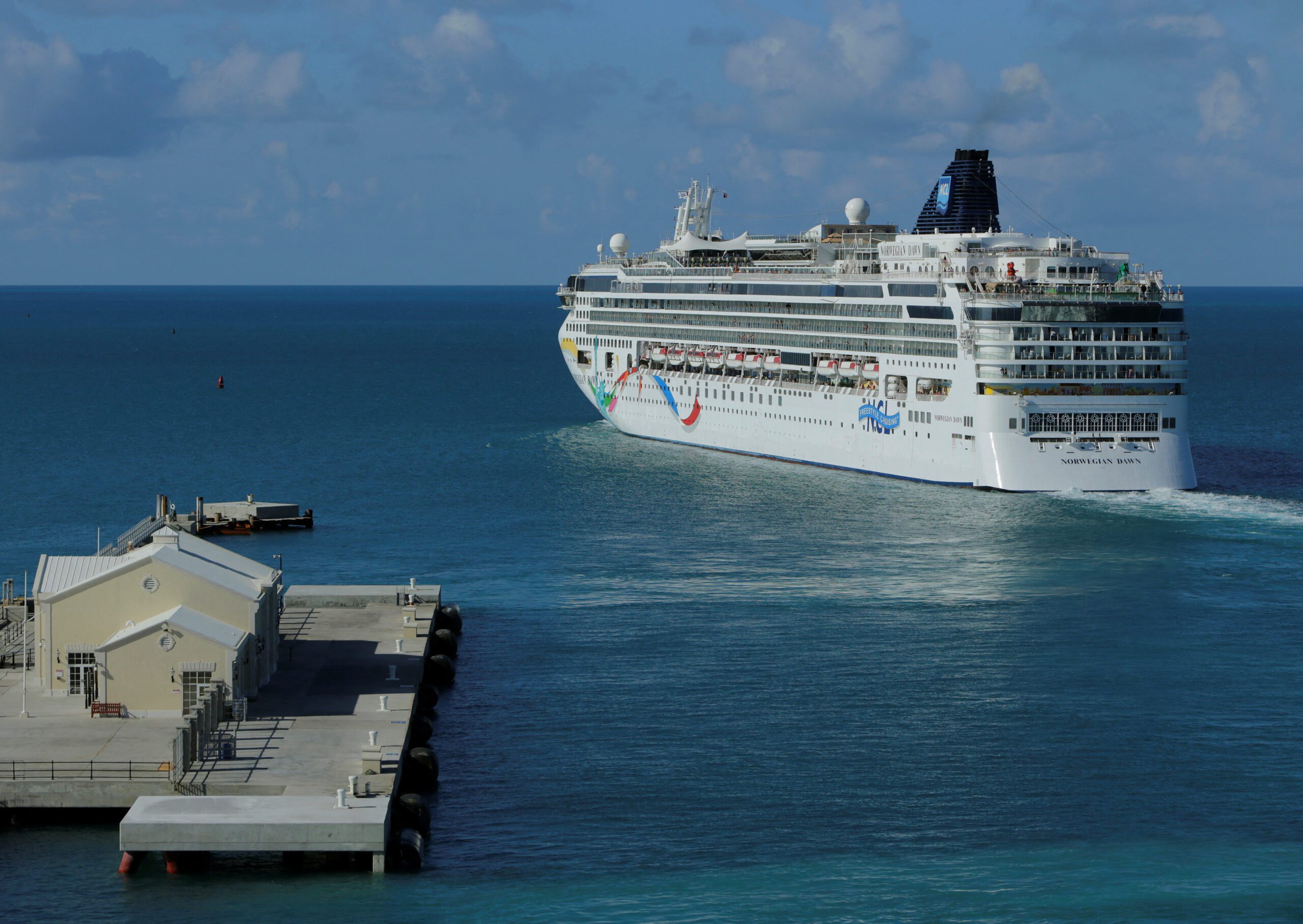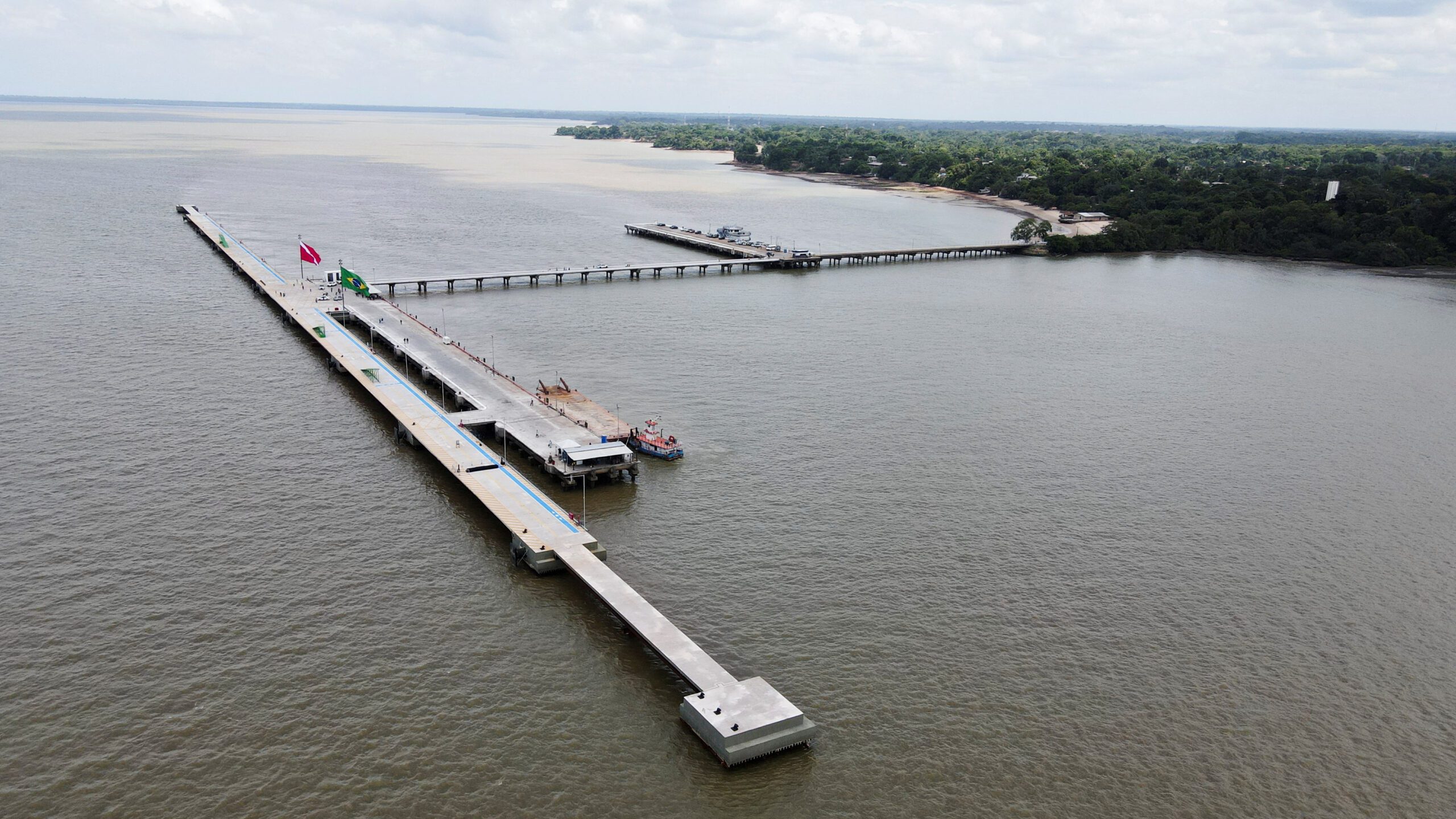By Luca Casiraghi, Olivia Raimonde and Sabah Meddings
(Bloomberg) –There was no Broadway show, mini golf or video arcades on board the Ritz-Carlton yacht which set sail from Barcelona in October on its maiden voyage. Guests were instead entertained by jazz musicians, an on-board art collection, and a shop stocked with $30,000 Birkin handbags.
Welcome to cruising for the rich.
The push by Marriott International Inc., the world’s biggest hotel group and Ritz-Carlton owner, into luxury cruising is part of a new wave of high-end operators targeting the wealthy. As existing operators battle to pay down debts incurred during Covid and room occupancy remains below pre-pandemic levels, new entrants are seeking to take a slice of the premium market.
Aman Resorts, owned by real estate developer Vladislav Doronin, is due to launch in 2025 in a venture with Cruise Saudi, a new operator owned by Saudi Arabia’s Public Investment Fund. Four Seasons, whose billionaire owners Bill Gates and Prince Al-Waleed bin Talal have their own yachts, is also planning to debut its offering.
“The first vessel in our future fleet will set sail in 2025 with 95 residential-style suites at a cost to build of $4.2 million each,” said Larry Pimentel, who was tapped by Four Seasons to lead its expansion into the industry. Rooms will feature floor-to-ceiling windows, terrace decks and, they say, nearly 50% more living space per guest than rival operators.
For hotel operators, offering cruises means that existing customers have more places to use their loyalty points — encouraging them to spend more with the company.
“It’s all about capturing hearts, minds and wallets,” said Jeanelle Johnson, a partner at PwC’s hospitality and leisure practice.
Italian Billionaire
The new entrants have captured the attention of industry veterans. Billionaire cruise magnate Manfredi Lefebvre, often spotted puffing on a chunky cigar, sold out of a luxury operator five years ago, frustrated he couldn’t secure the same borrowing conditions as the bigger players.
Now he’s back, after buying two Crystal Cruise ships last year with A&K Travel Group that are being upgraded to luxury vessels.
“We considered partnering with a hotel brand but we eventually chose to go ahead independently and to position at the high-end of the luxury sector,” he said earlier this week. “Cruises cost 60% of an equivalent hotel vacation, and today even less than that”
Luxury travel is recovering faster than the wider market and is proving tempting to operators, according to Patrick Scholes, managing director of lodging and leisure at Truist Securities.
“One of the biggest drivers in the cruise industry or in travel right now is higher-end luxury,” he said. “You have everybody trying to get in on that trend.”
David Bernstein, chief financial officer at Carnival Corp., has been watching the new entrants with intrigue. He accepts there will be greater competition for higher-spending customers.
“I’m sure there’ll be some people who’ve cruised with us before, who also stayed in a Four Seasons Hotel, who says ‘yeah, I’m going to try this product’.”
Balance Sheets
Carnival is among the incumbent cruise operators battling to restore their balance sheets after being forced to turn to the credit markets to stay afloat during the pandemic.
The turmoil left Carnival, Royal Caribbean Cruises Ltd. and Norwegian Cruise Line Holdings Ltd. with about $74 billion of debt combined, including operating leases. The three companies have added about $44 billion to their debt loads since the end of 2019, according to a December analysis by Bloomberg Intelligence.
That will eventually need refinancing as the era of cheap money comes to an end.
“The benefit from multiple actions we have taken during the last few years to improve margins continue to yield results as we focus on executing our proven formula of moderate yield growth and strong cost controls,” said Naftali Holtz, chief financial officer at Royal Caribbean.
Expansion Impact
Over at Carnival, the debt levels have caused the firm to slow expansion, according to Bernstein. Before the pandemic, the operator was building three or four ships a year. Today, it has only one ship due in 2025 and none in 2026 — moves he hopes will restore the firm’s credit rating, and allow the operator to continue to refinance.
Cruise operators are only just beginning to edge closer to pre-Covid occupancy levels. Carnival expects 90% occupancy in the first quarter of this year, compared with just 54% in the first three months of 2022, and expects it to be more than 100% in the summer.
The slow pace of the rebound means less revenue is available to the operators, for now at least, to chip away at interest payments.
‘Chip Away’
Higher interest rates have “really dampened their recovery plans because they were still very much depending on the capital markets to fill cash gaps, and they still are,” said Jody Lurie, a credit analyst at Bloomberg Intelligence.
Hedge fund Marshall Wace, which made money in December from a short bet on Carnival, told its investors that a deterioration in consumer spending could cause profit metrics at the cruise company to fall short of expectations.
Karim Moussalem, who runs an equity long/short strategy at Selwood Asset Management, is shorting the company.
It “has a very problematic combination of three things: consumer under pressure; balance sheets, which remain very stretched; and no hedging when it comes to oil prices, which I believe will be a huge problem for 2023,” said the money manager, whose $100 million fund started in April and has gained about 15.6% since then.
In response, the operator said that it had consistently demonstrated its resilience and that people are prioritizing spending on experiences over things. “Our future looks very bright,” it said in the statement.
Carnival does have options. Rumors swirled last summer that the operator would sell off one of its brands.
“Somebody called us and said they were interested, and we listened,” said Bernstein. “We are open to it, we think about it, but nobody’s knocking down the door looking to buy a brand.”
By contrast, that name recognition is one of the advantages that hotel operators have as they enter the industry. In addition, they often have stronger direct sales channels from regular guests that they can tap into to help fill the boats.
On the Ritz-Carlton cruise, about two-thirds of the bookings came that way, which Marriott Chief Executive Officer Tony Capuano told analysts was many times above the rates for most cruise companies.
Bernstein has decided to be positive — hoping that the Four Seasons or the Ritz-Carlton foray into cruises will provide more future customers for Carnival.
“If they have a great time, they may also say ‘Cruising is a wonderful way to travel. Maybe next time I’ll go on a different cruise line and take my kids and grandkids’ and the Four Seasons and Ritz-Carlton may not be the way to go’.”
–With assistance from Nishant Kumar.
© 2023 Bloomberg L.P.

 Join The Club
Join The Club











